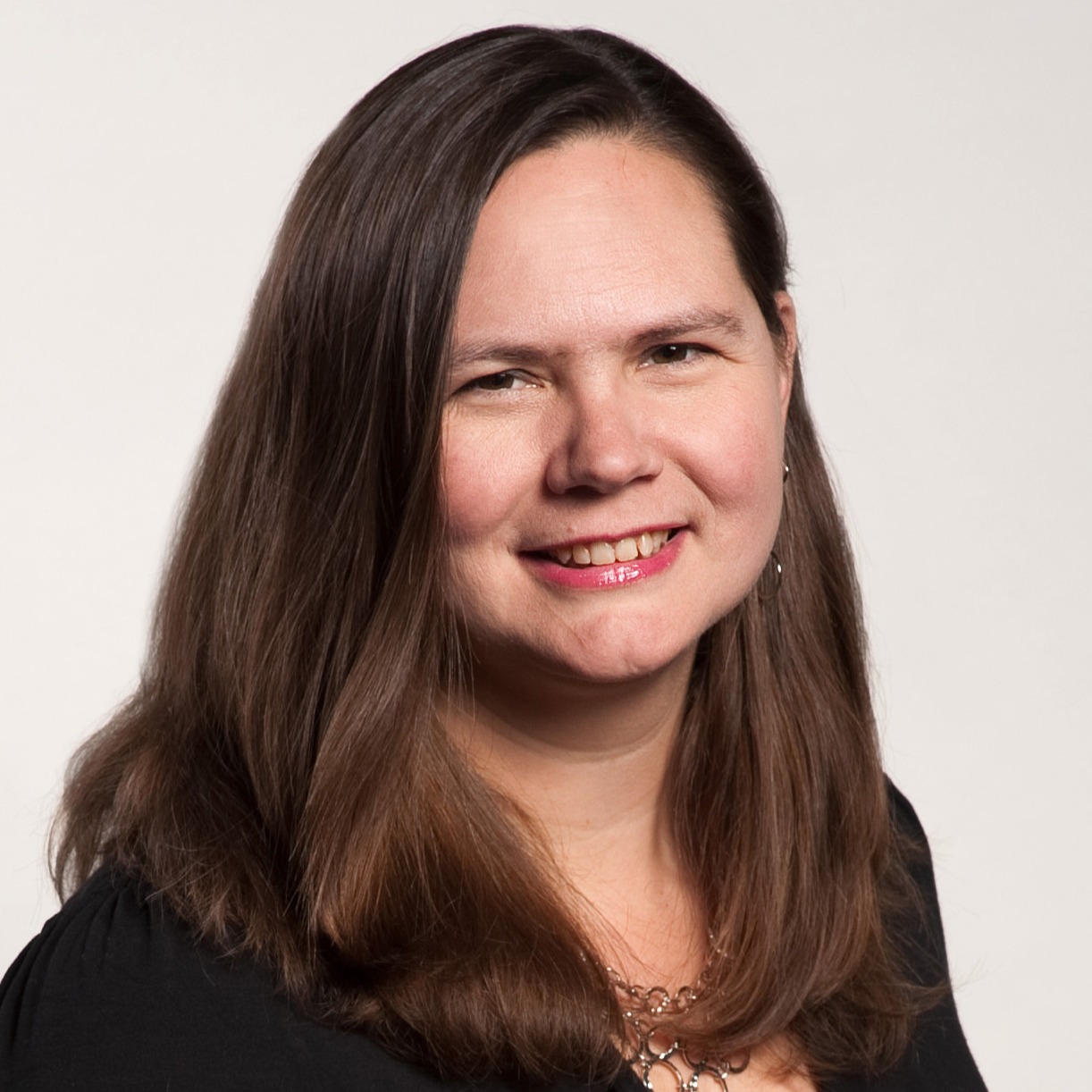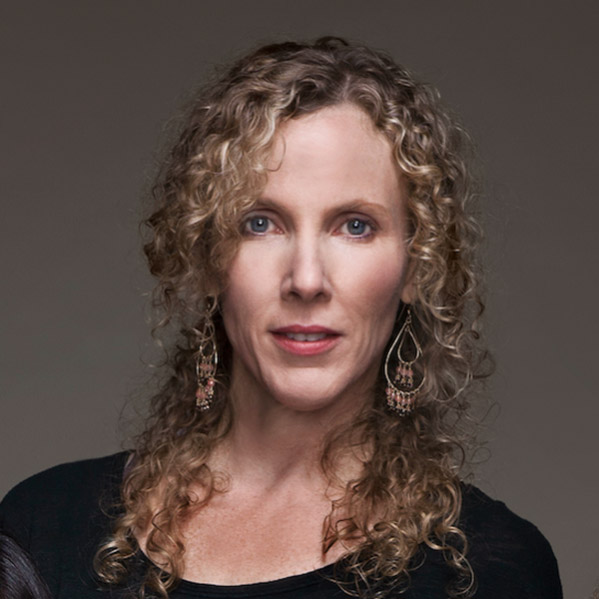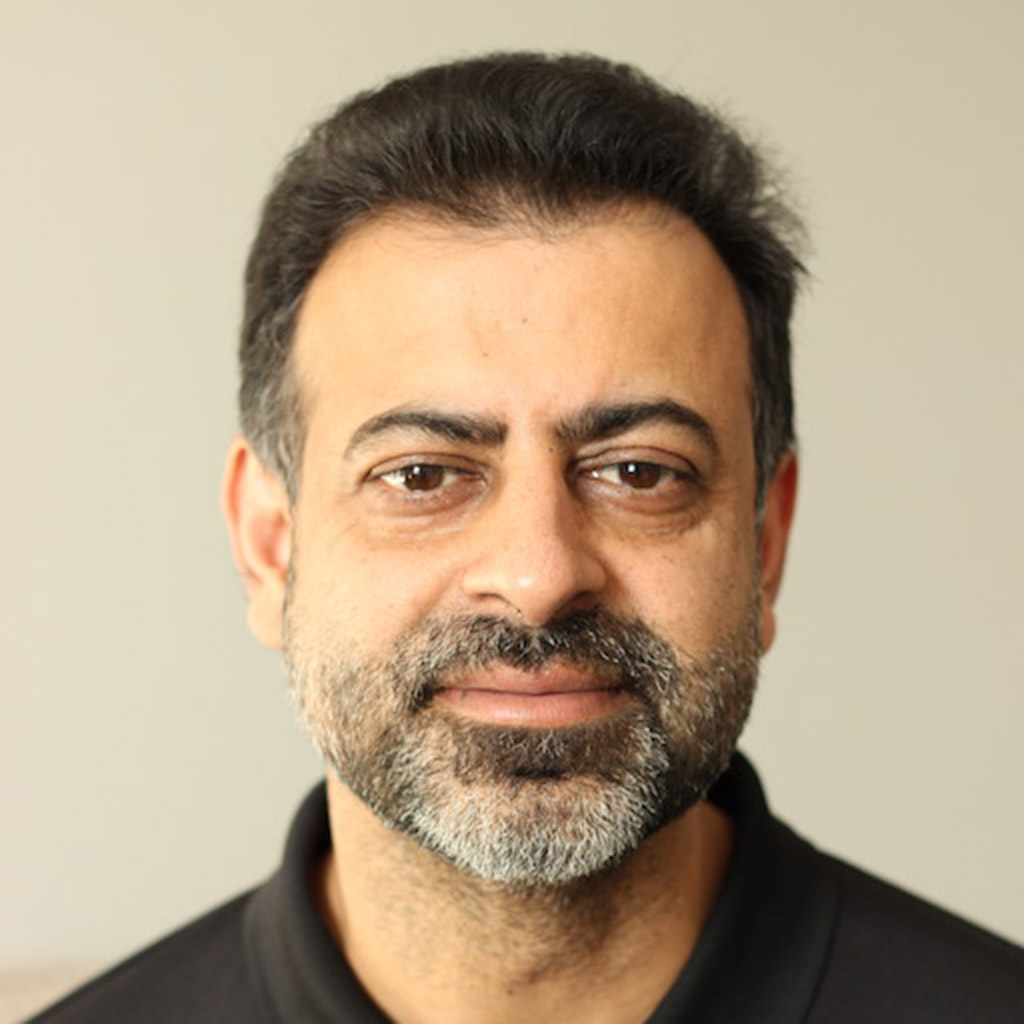Suzanne: Do you prefer working in a larger team environment versus a handful of people?
Armen: Handful of people, small startup company. I prefer that.
Suzanne: You prefer that?
Armen: Yes.
Suzanne: What do you love about that?
Armen: Is that your job responsibility is not really clearly defined. You’re wearing many hats. You’re doing many things. You have more responsibilities and you have more authority. In Hot Schedules and startups I’m always doing everything. First when they started I was doing some care automation. Then I was doing some infrastructure things. Then I was just removing all the impediments from developers. In the same time, I was doing the product management to find what kind of product we’re going to build. What is MVP? What kind of functionality it will have and tell the stakeholders. You’re doing everything. You’re doing a little bit of everything. It’s very cool.
Suzanne: You wanted to touch everything basically?
Armen: I wanted to touch everything. Even though I know there is a conflict of interest. I was releasing products, acting as a release manager in the same time I am a product manager. There’s actually a conflict of interest. As a release manager, I want to make that release, make it happen, make it safe and I know it for sure that we’ll hit the release date. As a product manager I want that to be a release, but I want specific features to be released. Something that is very important to me, high priority.
In a great case, in a real life in the big company it would be 2 different people and they will be arguing to each other and to find out what kind of task go in the release and what kind should not. Release manager will say like, “We can’t release, it’s too big. We need to cut it down, remove some features.” The product manager will fight for some features that is priority.
Suzanne: You bring up a very interesting point. When I think of the product manager’s role, one of the things I always say is, “You’re the lifeline to the customer. You’re the lifeline of the user.” Inside the company you have to be that person who’s always remembering the different users of the product and keeping their interests top of mind and top priority. As a release manager on the development side, ideally of course they care as much about the customer and the user as you do, but as you point out, they’re more focused sometimes on checking things off their list and accomplishing their day.
Armen: Like product manager, you’re mediator between development and stakeholders or customers. As a release manager he needs to think about the customers as well, but really he’s rolling in releasing and releasing safely or releasing without a lot of bugs and stuff like that and hitting the date. For product manager you want it to be released, but at the same time you want these features, you want the customers to be happy with the release.
Suzanne: What’s the first hard lesson that you ever learned on the job? First mess-up or first time that you realized, “Oh oh this is bigger than … I’ve bitten off more than I can chew?”
Armen: When I was working in the startup. Startup department in Hot Schedules the biggest lesson for me was, “Don’t make even small change before demo or even better to have demo environment separated.” It was a situation where my head was in the table because of the bug that we released and the feature that I asked people to deploy and to do. We almost lost that demo like 30 seconds before it started, I had to fix the bug by myself. Accidentally like an hour before, I found out the big bucket is down and I cannot fix it and I had to go to the production environment and do it by myself. That’s the biggest lesson that I learned because my CTO was screaming at me on the team to fix it right away, stuff like that.
Suzanne: There wasn’t a separation between the dev and staging environments or you just said, “Make a hot fix and push it live.”
Armen: We didn’t have the release environment yet, so it was a dev environment. We had staging and dev environment, but we deployed them both accidentally. We didn’t catch the bug and we deployed it and it was actually super critical and very high priority. It actually broke the whole demo before we fixed it, but I did.
Suzanne: Lucky that you were able to fix it.
Armen: Everybody was just screaming around and don’t know what to do. We learned that sometimes I can act in a very … In an environment like that, when even CTO lose his mind and just screaming and using “F” word all the time, that I can actually take myself in his hands and fix it back right away.
Suzanne: Would you say then that the ability to stay calm in difficult situations…
Armen: Except for my English, that’s what I learned how to deal with that.
Suzanne: No, I think your English is perfectly fine and I just wanted to capture the sentiment. It’s an essential quality for a product manager is to be able to stay calm because a lot of people around you won’t be calm a lot of the time.
Armen: In that case, it was like nobody was calm and I was calling people to come in and try to fix it back right away.
Suzanne: Lamps Plus which is where you are, they’re lamp store. They’re a retail store. They got one down Miracle Mile, you walk in lamps everywhere. You’re on the e-commerce team?
Armen: Yes.
Suzanne: Tell us a little bit about what you guys are doing over there and what you specifically do for the company?
Armen: Even though the company’s called Lamps Plus we actually have a couple of the different products. We have couple of the different e-commerce website. Not all of them about the lamps. I won’t point to specific ones, but we’re dealing with a number of the e-commerce website and we’re just defining what’s going to be there and how the pages were going to look and what the search pages are going to be.
Suzanne: How many other products managers besides yourself?
Armen: We have a pretty big team of product managers. Around all together around 6-7 people doing product management. Even though you won’t think that Lamps Plus is just a site. They say it’s nothing on the platform or something, but why do you need so big team? Actually it has a lot of logic in it. A lot of hidden logic. It’s not just a simple as Shopify or e-commerce or Magento or anything like that. We’re having our own platform. Everything is built on in-house and we have a lot of internal tools that we built. That’s why we have a big team.
Suzanne: Is the division of responsibility across the product managers based on batches of features or it’s these separate assets that each individual person is wholly responsible for?
Armen: When I joined it wasn’t … There wasn’t any definition what kind of features you own. We was more like product managers but not product owners and I didn’t like that. We all agree that it’s not only the way how we want to handle things. We decided to try out separated by features and maybe by sites sometimes what will be your area of responsibility. Otherwise, it will be like task will come to my hands from some stakeholder or maybe I will hear it from somewhere and I will work on that. Once it’s deployed I might … I’m out. I’m good. It was messy before but now we’re trying to clearly define what is your area of ownership.
Suzanne: One of the things I like about Lamps Plus as an example in this project is it’s not the kind of place that somebody might instinctively think a job could exist for them. I talk about this oftentimes with my students. Certainly in the startup world, certainly in Silicon Beach and Silicon Valley, there are jobs for product managers in any company that’s building an app or some sort of technology, web or mobile technology. Meanwhile, there’s all of these brick and mortar businesses like Lamps Plus and many others who have technology departments or have a need for that. There’s a need for these companies to evolve beyond brick and mortar.
Armen: I can add to that. Many times the need for technology department. Maybe the company like Burbank Water and Power Company. Maybe they have a need for technology department but maybe they will offer, they will give … They will work with some third party company who will provide the website with all the things that they need towards some technology or whatever it will be. Sometimes and usually they have some kind of product manager in house who will interact with the third party. There’s all possibilities for product managers to find the jobs of course.
Suzanne: Exactly. That’s what’s exciting. Don’t look in just the obvious places. We talked a little bit about this offline, but sometimes finding a job in product management is less about applying for a job and more about seeing an opportunity. Where there’s a gap within the company and if you can recognize that its missing that key player to bring it all together.
Armen: If you compare Silicon Valley, San Francisco to LA or Denver or any city like that, by the time this company doesn’t know whom they turn to, whom they’re looking for, they’ll put job requirement for business analyst but actually they look for product manager. It’s not clearly defined for them what is a product manager, what is a business analyst. I see a lot of open positions for business analysts here in LA area. From their responsibilities I can see that it’s actually product manager.
Suzanne: Interesting insight. What advice would you give to somebody. They’re fresh out of school. They just graduated from General Assembly Product Management class. They want a job. What advice would you give them to go out and find something.
Armen: Have couple of their resumes and dice it with different titles. You can have a business analyst. You can have product manager or product owner. People who doesn’t know exactly whom they’re looking for, and then you have to talk to the HR or whoever is hiring them, you’ll find out is really product manager or its actually business analyst. That’s my advice. Even in my title I have e-commerce product manager slash business analyst. That’s confusing.
Suzanne: Strategic though. It’s intentionally confusing. Product management is that intersection between business requirements, technology requirements, design requirements. If I had to lead with one area of expertise amongst those 3, where’s the best place to bolster your skills first? You had a web development background, you’re not formally trained as you’ve said, but that was you started in technology and then moved into that center.
Armen: Again, we’re coming back to the titles. There are actually 2 different titles like business product manager and or maybe marketing product manager and technical product manager. Depends where you’re going to go, especially in Silicon Valley you can see that this is 2 separate people sometimes. The business guy will be more in the business on marketing side and the technology guy will be more working on technology side. He will be like mini CTO, not mini CEO.
Suzanne: You like the mini CEO role? It’s where you work business.
Armen: I like both actually. It’s actually my title in Lamps Plus. They was looking for product manager, they couldn’t find. They put the business analyst they found a couple of them. What I’m saying, I like both sides because I’m from technical background and the same time I’m entrepreneur. I like both sides. I don’t know. It’s hard to choose. In one company I’m more technical and in one company I’m more into business.
Suzanne: That really speaks to whether you have one specific skillset that’s kind of your strongest skillvset. That really speaks to both the challenge and the opportunity for product management is no 2 environments will ever be the same. You might be spending a lot of time managing releases, actively involved with development at one company, switch to another company same title and suddenly you’re on the marketing in the business side far more.
Armen: I hear that from all my product manager friends. They all say that in different companies the product manager’s responsibilities is completely different. They’re kind of similar in you are a mediator between the business and development, but whatever you do is different day to day, it’s different.
Suzanne: You’re also a founder? You’ve got Goblin Games?
Armen: We don’t have a name yet.
Suzanne: You don’t have a name, Goblin Games is one of the games you created?
Armen: It’s actually one of the teams. That’s my side project. We have 3 games that we developed and we’re trying to release soon. Maybe it’ll be my startup. I don’t know. We’ll see.
Suzanne: Why gaming?
Armen: Actually I started more for learning purposes. I can learn more what CEO or CTO does by being CEO or CTO of the teams. I’m investing in small teams that’s making the games. I’m finding them and I’ve different places around the world and I just invest. I help to fund the technology, the processes and then try to manage people and stuff like that. That way I’ll learn how to do that because investments, actually my investments are very, very small. Usually these people are located in Russia, Ukraine, somewhere in the Eastern Europe. It’s pretty big learning.
Suzanne: Managing a new developer team can be challenging. Managing an offshore team comes with a whole other set of challenges including … I know this from my own experiences, but I think a lot of people don’t know about this. The cultural difference creates challenge. It’s one thing to say the time zone. Yeah, you’re going to spend a lot of nights being up late, connecting with your team as they start in the day. It’s another thing to say language barrier. Those are obvious but I think-
Armen: There’s mentality difference as well. You can build a culture you didn’t know, but every company building their culture and artifacts specifically through that company onsite. These guys in offshore, they might not be affected by that. They own culture.
Suzanne: Absolutely, I would agree with that. For example here in North America interfaces everything. You could be presenting something to an internal team of stakeholders. It could represent tons of complex business logic behind it, but if the button looks wrong that’s all anyone can focus on.
Armen: Yes.
Suzanne: I find a lot of times developers, certainly backend developers think, “Who cares about the button, we can clean the button up at a little later day.”
Armen: We called the API and it works-
Suzanne: Exactly. We’re busy celebrating we finally figured out how to solve this problem. It’s interesting.
Armen: Just to add to that. I think the very nice thing about how you present it to stakeholders is demos, sprint demos. We’re doing that with the sprint demos. We try to encourage developers to present what they have done and explain at the same time if it is too technical. That’s actually what that means. This payment system. They will explain what’s going on and how complicated so stakeholders will understand what it takes so long or why everybody spends so much time on that.
Suzanne: What do you think is the most misunderstood aspect of product management? The thing that people don’t realize that it’s about, or even does your friends and family know what you’re talking about when you tell them that you’re a product manager?
Armen: No.
Suzanne: What do you think that perception really is for people who aren’t in the field?
Armen: Again, it depends where you live. As I mentioned the way they’ll … They won’t think about technology if you’ll say I’m product manager. They won’t think about technology at all. Even if you’ll say that you’re in technologies, I don’t think that they will understand what your duties are. They just don’t know what you do. They don’t have anything in their mind about what is your role, so I have to explain. The easiest way is just to say, “Mini CEO without the power.”
Suzanne: It is true. I have friends that have known me for over a decade and they say to me, “You know, I still really don’t understand what it is you do.” I just, “Forget about it. Too tough to explain.” Are you a podcast guy? Are you a books guy? Where do you like to get your information practice?
Armen: From real life when I try to implement or if I’m facing the problem that I need to solve. It’s hard for me to read the technical books or books like that. I’m easy to read some regular books about romance and poems and stuff like that, but not technical. I don’t know. I’m not that guy who’ll sit next to the book and read for hours and hours and hours. I need to try it. I need to practice it. Not even podcast. I like to listen podcast, but if I won’t try it or I won’t face that issue, I won’t learn and I’ll forget.
Suzanne: You’ve been restless since you were 2 years old. You can’t sit down so it makes a lot of sense. Do you have a role model or influencer or inspiration in the technology space that when you think about being … Maybe one day being a big CEO versus a mini CEO or having the power or anything that you think, “Oh, that person is a role model for me.”
Armen: No. I don’t have anyone because we’re not ideal. I don’t have anyone that I look on like, “Ah, I want to be that guy.” No, I watch every guy, every cool guy like Elon Musk or Steve Jobs, even read the biography of Steve Jobs, people like that. I look at them I see their pros and cons. I try to explain to myself what his cons were, what his pros were. What I need to learn from him. What I should not do as he does. I don’t have anyone like … Just Jesus maybe. I want to go like a Jesus but apart from that, no.
Suzanne: Fair enough. That’s a role model none the less.
Armen: I would like to be a CEO one day. Pretty big company starting from startup. That’s something that I’m working on.
Suzanne: I’m imagining a world where I’m drinking out of a mug that has a quote from you on it, what does that quote say?
Armen: Just do it. Try it. I can’t say. My English is not that great. It’s hard for me to put that great sentence that will be in your mug, but I’m living the life where I tend to try things rather than just think about them too long. Using lean startup kind of style. If I have some idea that I have in my mind and I’m like, “Oh, I think that will work,” but I will never try because I’ll tell myself it’s too expensive. I’m not going to do that because it’s too expensive. It’s too risky. I’ll create a way how to at least prove to myself that this idea doesn’t work and this idea works.
Suzanne: You’re incredibly inspirational as an entrepreneur. You keep coming back to this concept of it, but especially side projects. Somebody brought this up to me recently and I think it’s also great advice. You might not just immediately find that job. It doesn’t mean that you shouldn’t keep looking and it doesn’t mean you shouldn’t pursue this field if it’s what you want. While you’re looking and while you’re pursuing it, pick up the computer and start coding or put together a team and start a little gaming company.
Great if it ends up becoming something, but even if it’s just for the purpose of getting some practice on the ground. Frankly having a portfolio piece to leverage, because if you don’t have that real world experience from someone else’s company, this is sort of the next best thing. It didn’t work there but here’s what did and I did out of passion and willingness to learn.
Armen: Sometimes you don’t need any money to startup. You just need right people that would like to work with you for free. The product manager as I mentioned, yes as mini CEO you need to be that guy who will create the products basically. You need to be a startup guy.
Suzanne: Absolutely. I asked you about quotes, one of the ones that I like to say is, “When it comes to making excuses, one is as good as another.” Really just meaning that once you start coming up with reasons for why you can’t do it, they’re all the same. You’ve given up in advance.
Armen: Yes.
Suzanne: Armen, thank you so much. Really it’s so exciting to have you be part of the project and amazing insights and just I love your energy. I love chatting with you, so I really appreciate it.
Armen: Thank you. It was a pleasure to talk to you.
Suzanne: Thank you.

In this episode:
- Where do startups go wrong with implementing OKRs
- Can OKRs really scale for enterprise?
- What are pipelines and how do they change the way we think about product roadmaps?

In this episode:
- From retail to product management
- Why relationship building is the number one required skill a product manager could have
- The value of having confidence with humility

In this episode:
- Establishing a clear vision of your career path
- Using metrics to answer burning product questions
- What product managers can learn from biology

